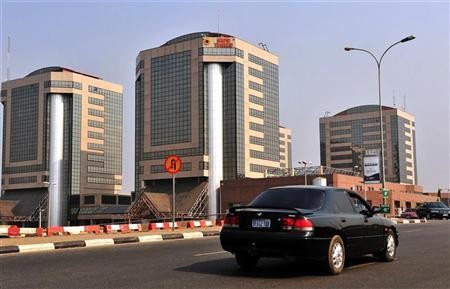Nigeria: NNPC relaxes ban on 113 vessels over illegal crude oil sales

The state-owned Nigerian National Petroleum Corporation (NNPC) has relaxed a two-month ban on 113 vessels that could no longer lift crude oil from several ports in the country. The ban, believed to have been implemented following a directive by President Muhammadu Buhari, was issued amid suspicions the tankers were implicated in illicit lifting of crude oil.
The ban was criticised as it was feared it could undermine the country's already crippled economy. Members of international oil tanker companies said the ban could affect their business and lacked transparency.
NNPC has never issued an official statement regarding the decision to implement the ban. However, on 8 September NNPC announced it had relaxed the ban as Buhari decided to allow the vessels into national waters, provided they had a letter guaranteeing they were not involved in any illegal activity, Reuters reported.
Nigeria
Capital: Abuja
Population: 174,507,53 (2013 census)
Largest cities: Lagos, Kano, Abuja
Major ethnic groups: 21% Yoruba, 21% Hausa,
18% Igbo
Languages: English, Hausa, Igbo, Yoruba
Religion: 50% Muslim, 40% Christian, 10% other
Currency: Naira (N) 1N = £0.0033; US$0.0050
Buhari warned that some 250,000 barrels of Nigerian crude oil are stolen every day and sold to other countries at higher prices. The president vowed he would fight corruption and recover billions of dollars worth of funds he alleged had been stolen during previous administrations.
After taking office in May, the new leader replaced the whole NNPC board and Emmanuel Ibe Kachikwu, a lawyer with 30 years experience in energy, was appointed the company's new director.
NNPC has long been marred by scandals linked to stolen revenues. In 2013, the head of the Central Bank of Nigeria (CBN), Sanusi Lamido Sanusi, was suspended after he claimed that $20bn (£13bn) of oil revenue "had gone missing" from NNPC.
In a letter to former president Goodluck Jonathan, Sanusi said: "I am constrained to formally write your excellency, documenting serious concerns of the CBN on the continued failure of the NNPC to repatriate significant proportions of the proceeds of crude oil shipments it made in gross violation of the law."
The allegations triggered an investigation into NNPC books. According to the audit, released in April, NNPC overpaid the state by almost $750m, but still had to pay an additional $1.5bn.
© Copyright IBTimes 2025. All rights reserved.






















